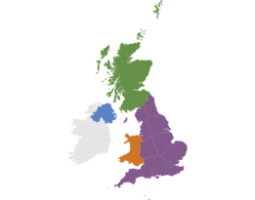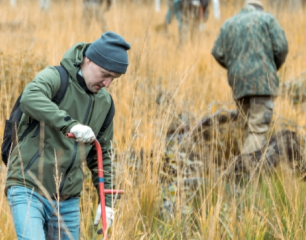We’re keen to provide up-to-date, practical information about climate change adaptation and want to ensure the Climate Change Hub meets the changing needs of the forestry sector. Your feedback is invaluable and we would welcome your views.
Funding & support
Forestry and environmental policy in England, Scotland, Wales and Northern Ireland recognises the importance of adapting our trees, woodland and forests to the changing climate.
This is underpinned through advice, support and incentives, provided by government and other organisations. Check the respective website for the latest updates regularly.
Government incentives
England
The Forestry Commission provides advice and guidance on regulations and grants for planting, such as the England Woodland Creation Offer. See the funding and advice page which lists the current opportunities to plant trees and create woodland on your land, including an overview of England Woodland Creation Partnerships grants.
Contact your local Woodland Officer for advice or to stay up to date subscribe to the Forestry Commission grants and regulations news.
Wales
The Welsh Government has several grants for forestry which provide funding towards woodland creation and development. Grants in Wales currently include: Woodland Creation Grants for schemes under 2 hectares and for larger areas of new woodland (over 2 hectares); the Woodland Creation Planning Scheme; Coetiroedd Bach (Tiny Forests); and the Woodland Restoration Scheme.
Scotland
Scottish Forestry is the Scottish Government agency responsible for forestry policy, support and regulations. The Forestry Grant Scheme (FGS) offers financial support for the creation of new woodland and the sustainable management of existing woodland.
Northern Ireland
Information about the Department of Agriculture, Environment and Rural Affairs and support for forestry in Northern Ireland, including grants towards the cost of creation of new woodland and management of existing woodland is available from the Forest Service.
Across the UK there are a number of organisations offering both general and focussed advice and support to those looking to create or manage forests and woodland. Forestry Commission (England), NRW (Wales), DAERA (Northern Ireland), and Scottish Forestry (Scotland) offer information on woodland regulations, such as felling licences, Environmental Impact Assessments, importing and exporting timber, timber procurement and conservation, and grant schemes.
Other organisations include:
- The Institute of Chartered Foresters
- Confor
- Royal Forestry Society
- Royal Scottish Forestry Society
- Sylva Foundation
- Woodland Trust
- Small Woods Association
- Small Woodland Owners Group
- Soil Association
- Forestry and Farming Connect
Advice focused on wildlife, habitat protection and conservation is available from Natural England, Natural Resources Wales and NatureScot. It is common for forest managers and owners to seek local advice from Land Agents and woodland advisors.
Support across the United Kingdom
- The Woodland Trust’s scheme ‘MOREwoods’ may support planting of small woods or scattered plantings covering at least half a hectare (0.5 ha / 1.25 acres) and a minimum of 500 trees. Support is provided in the form of advice and contributions towards planting and management costs.
- The Woodland Carbon Code is the quality assurance standard for woodland creation projects in the UK, and generates independently verified carbon units. It is for Forest Managers and woodland owners across the UK who are looking to generate income from new woodland creation and make a contribution to the removal of CO2 from the atmosphere. This scheme involves selling the rights to the carbon captured by certified woodlands to investors, typically those who wish to compensate for emissions.

Share Your Feedback





